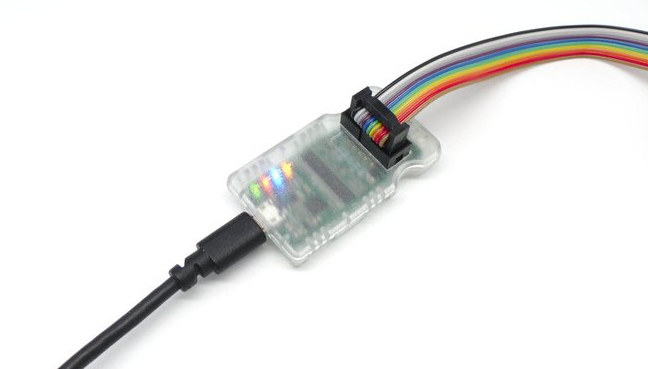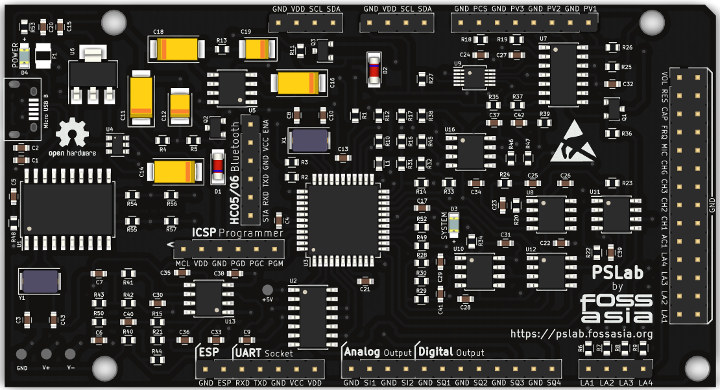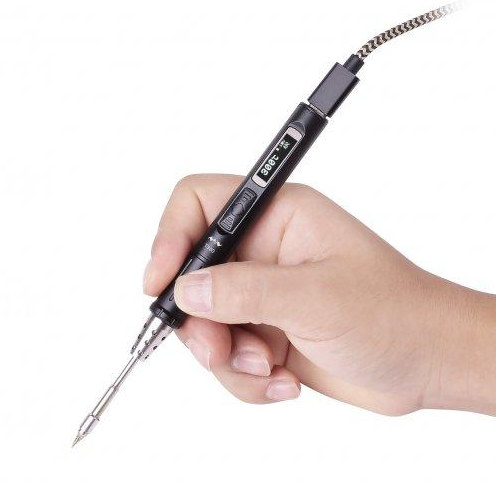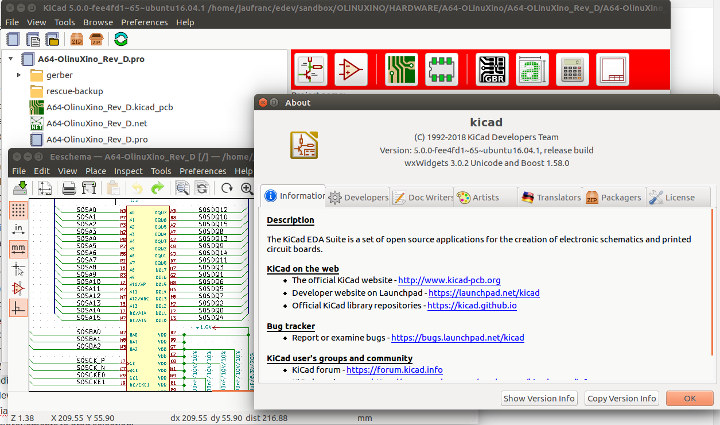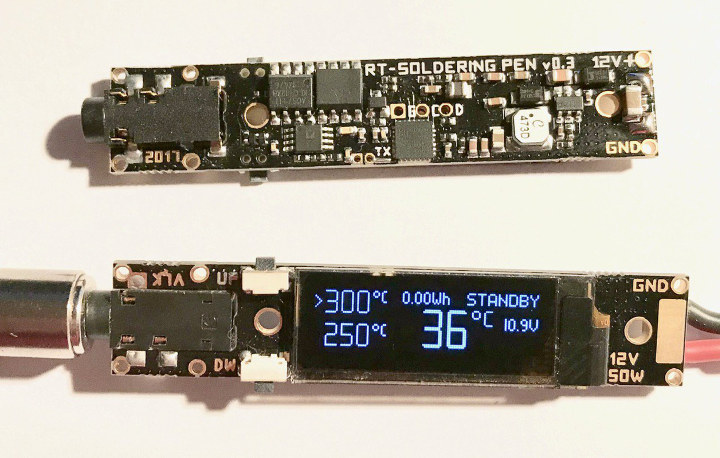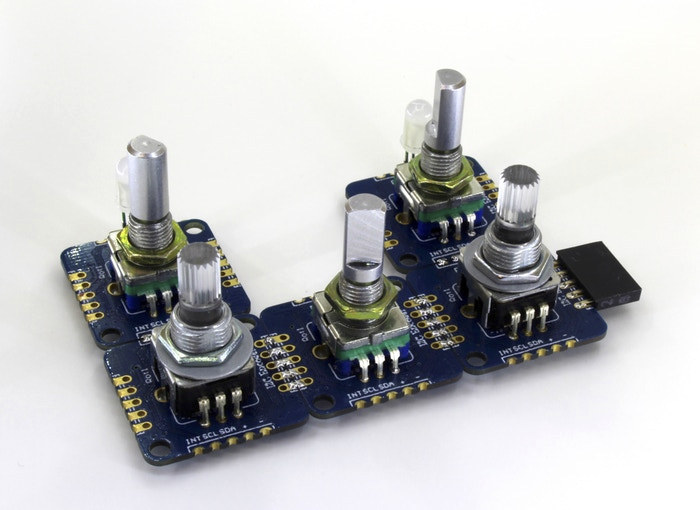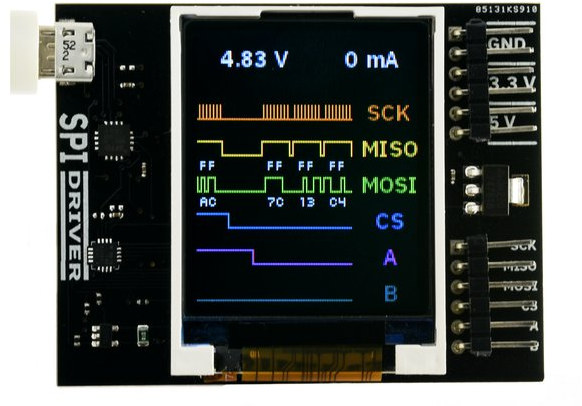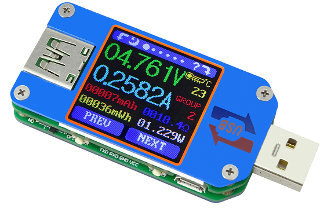I’ve never had specific issues with USB to TTL debug boards personally, but potentially you could damage the target if you select one with the wrong voltage, and for more advanced use cases often do not include GPIOs. μArt USB to UART-TTL Adapter aims to solve those issue with wide voltage range (1.8 to 5.4V), safety features like galvanic isolation or over-current protection, and one header exposing I/Os. Key features: Universal TTL-UART – 1.8 – 5.4 V, up to 3M speed, standard & non-standard baudrates, pins for handshaking and flashing various MCU families, wide OS-support Galvanic isolation, integrated pull-ups, signal- and power-filters Over-current protection, reverse-polarity protection, ESD protection, mechanical protection Voltage-autosensing, LEDs, GPIOs, software-configurable Dimensions – 58 x 33 x 14 mm Weight – 16 grams Everything is also packaged in a case contrary to most (all) other boards in the market. uART-USB-TLL-Board The developer provides drivers for Windows, Linux, […]
Pocket Science Lab (PSLab) is an Open Source Hardware Electronics Lab
Last Saturday I created a virtual schedule for the Embedded Linux Conference Europe 2018 where I listed some of the sessions relevant to myself and hopefully regular readers of CNX Software, but due to scheduling conflicts one talk did not make it to the list: “Pocket Science Lab – An Open Source Hardware for Electronics Teaching & Learning” by FOSSASIA. The project is also referred to as PSLab, and aims to “create an Open Source hardware device that can be used for experiments by teachers, students, and citizen scientists to learn and teach electronics”. It looks interesting enough so let’s have a closer look. The project is inspired by the earlier expEYES project that combines with Raspberry Pi or other Linux platform to create an electronic labs, and the work by the Open Science Hardware community. PSLab key features and specifications: MCU – Microchip PIC24EP256GP204 16-bit microcontroller @ up to […]
TS80 USB type-C Soldering Iron Up for Sale for $79.99
TS100 digital programmable soldering iron has been popular in recent years due to its compact size, open source STM32 firmware, fast heating, and it does the job. Another advantage is that the soldering can be powered by a standard 19V laptop power supply. As noted in a post about a separate soldering pen board with audio jack, the company behind TS100 has been working on a new model called TS80 powered via USB type C port, lighter & more compact, and supporting soldering tips that connect through a typical 3.5mm audio jack. The good news is that TS80 is now available for $89.99 on Sainsmart under the ToolPAC brand. Use TS80 coupon for $10 discount. [Update: TS80 is now sold on Banggood for $72.99 shipped] TS80 SUB type-C soldering iron specifications: MCU – STMicro STM32F103T8 Arm Cortex-M3 MCU @ 72 MHz with 20KB SRAM, 64KB or 128KB flash Temperature Range […]
Kicad 5.0.0 Open Source EDA Suite Released
Once upon a time, your only options to design schematics and layout PCBs were to purchase expensive software like OrCAD, or install a pirated copy of the same software, which was the standard practice in the country were I worked (China). Later on, Cadsoft EAGLE made projects much more affordable since they had a free version for hobbyists albeit limited to smaller boards. But in recent years, a new open source project called KiCad changed the market again, as it is entirely free to use, the community can be involved, and there’s no limitation. The software has even become good enough for companies like Olimex to design their new boards. A week ago or so, the project hit a new milestone with the release of KiCad 5.0.0. Some notable new features include: Whole Project New libraries for symbols, footprints and 3D models based on KiCad Library Convention (KLC) New 3D […]
This Soldering Pen Board with Audio Jack Supports Weller RT Tips
The 3.5mm audio jack may be slowly disappearing from new mobile phones, but I’ve recently discovered they were also used in some soldering irons such as the upcoming TS80 USB soldering iron succeeding TS100 model. I initially thought it was a custom design from the maker of TSxxx soldering irons, but this morning I’ve come across the “RT Soldering Pen” board which also features a 3.5mm (audio) jack and can be used to make your own soldering iron by 3D printing your own enclosure, adding some power source, and inserting one of the many Weller RT tips available into the jack. RT soldering pen board specifications: MCU – STMicro STM32F031 Arm Cortex-M0 micro-controller Display – 0.91″ OLED display with 128×32 resolution Compatible with all Weller RT tips with 3.5mm jack. Set-point temperature – 20°C – 400°C with about +/-5°C accuracy (calibration is planed) Maximum measurable temperature – 500°C Heating speed […]
Connect Multiple Rotary Encoders to Arduino, ESP8266, Raspberry Pi, etc… with I2C Encoder V2 (Crowdfunding)
Rotary encoders are pretty common devices that convert the angular position of a shaft to analog or digital output signals with quadrature-encoded A / B pulses the most common way of reporting the position to the micro. So for each encoder you’d need 2-pin, and if your project use many of those you may quickly run out of pin, interrupts, etc… Simone Caron has decided to tackle this issue by creating an I2C encoder board, which works with various encoders, and whose second revision is now offered on Kickstarter. The I2C Encoder V2 board supports standard mechanical encoders, illuminated RGB encoders, and clickable rotary encoders, each of which may be with or without dent. The board also comes with 3 GPIOs following RGB LED footprint, but also usable as PWN, GPIO, or ADC, and each board’s I2C address can be configured with some soldering on A0 to A6 pins. Finally, […]
SPIDriver Tool Allows you to Control and Monitor SPI Devices from your Computer (Crowdfunding)
SPIDriver is an interested SPI debugging / programming tool that connect to your PC’s USB port to control SPI devices, such as LCD Displays or LED strips, while showing the SPI signals and voltage/current levels on a color display. The tool can also be used as an SPI flash programmer. SPIDriver hardware specifications: Headers 5-pin SPI header up to 500 Kbps + A/B auxiliary output signal 4-pin power header with 5V and 3.3V support Maximum power out current – up to 470 mA Signal current – up to 10 mA Device current – up to 25 mA Host interface – micro USB 2.0 port Color display showing signals Dimensions – 61 mm x 49 mm x 6 mm The board works with an open source program available in Windows, Linux, and Mac OS using either a GUI or a command line. It’s also possible to program the device using C/C++ […]
UM25C is a Better USB Power Meter with built-in Display, Bluetooth, and Android & Windows Apps
Products such as USB Charger Doctor are good way to test your USB chargers or cables, as well as checking the power consumption of USB powered development boards. You just plug them into a USB port, and connect the load, and you’ll see the real-time voltage and current shown on an LED display. Those do the job, but I’ve just been made aware of UM25C USB meter tester that improves a lot on the concept with a dot matrix display capable of showing charts, and Bluetooth connectivity to send the data to Android or Windows devices. UM25C specifications: Display 1.44″ color LCD display 0-5 brightness setting Auto screen off time – 0 to 9 minutes Refresh rate – 2Hz Measurement Range & Accuracy Voltage – 4-24.000V ±0.5‰ + 2digits Current – 0-5.0000A ±1‰ + 4 digits Capacity – 0-99999mAh Energy accumulation – 0-99999mWh Load impedance – 0.8Ω-9999.9Ω Time range – […]


